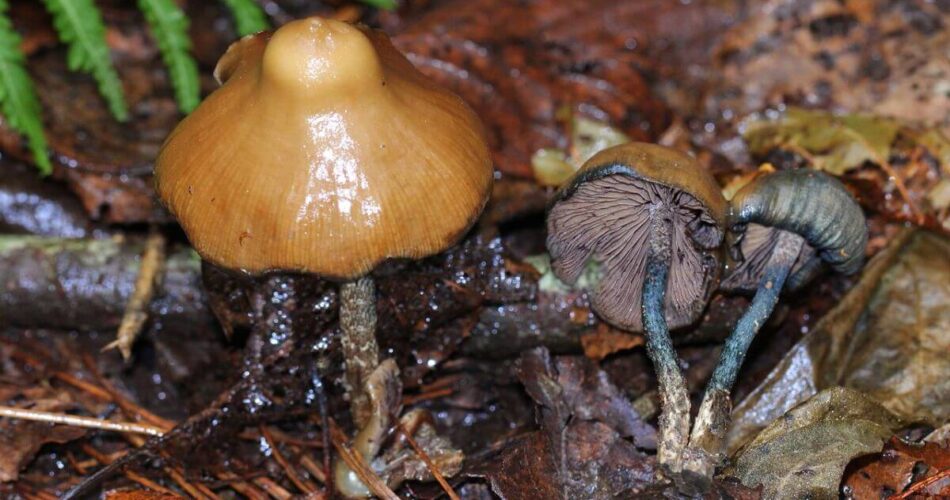Did you know that there is a type of mushroom that is only found in Japan? It’s called Psilocybe subcaerulipes, and it’s known for its hallucinogenic effects while consumed. Let’s find out more about this fungus.
Have you ever heard of Psilocybe subcaerulipes? It’s a rare Japanese mushroom that can reportedly induce powerful hallucinations.
History of the Psilocybe Subcaerulipes
Psilocybe subcaerulipes is a mushroom in the Hymenogastraceaceae family (genus Psilocybe) that is native to Japan. It is also known as the “hikageshibiretake”, which means shadow numbness mushroom. This species was first identified and described by a Japanese mycologist T. Hongo in 1958.
Morphology of the Psilocybe Subcaerulipes
The fruit bodies of Psilocybe subcaerulipes have caps that are 1.0 to 2.4 inches in diameter and initially bell-shaped or conic, but they become convex before finally becoming flattened as they grow older. The cap is chestnut brown when wet, and it changes its color to light brown when dry. This species bruises on blue color when cut or squeezed.
The grills can have an adnated/adnexed attachment to the mushroom’s stem. They are usually orange-gray in color, but turn purple-brownish as the mushroom gets older. The stem measures 2.4 to 3.1 inches, and it is whitish in color (then becomes yellow-brownish). The spores can be dark purple or brown.
Psilocybe Subcaerulipes – Habitat
This species grows in clusters on the ground, typically in soil containing a lot of woody debris. It has been found mostly in Japan, but grows also in South Korea, Taiwan, and Thailand.
Psilocybe Subcaerulipes – Psilocybin Content
The hallucinogenic chemicals psilocybin and psilocin have been detected in this species. Psilocybin concentration varied significantly from location to location. There have been several Japanese reports of intoxication following accidental ingestion of the Psilocybe subcaerulipes, with the symptoms including anxiety, panic attacks, and occasionally euphoria.
Similar Posts:
- Psilocybe Bohemica: A Psilocybin Mushroom From Europe. All the Information You Need to Know About the Species
- Galerina Steglichii: A Very Rare and Mysterious Psilocybin Mushroom Found in a Greenhouse
- Psilocybe Guilartensis: A Potent Psilocybin Mushroom From Puerto Rico. Morphology, Habitat & Interesting Facts
- Psilocybe Fimetaria: All You Should Know About This Magic Mushrooms Species
- Psilocybe Muliercula: Discover a Rare and Potent Magic Mushroom
- Gymnopilus Viridans: Uncommon Shrooms Species
- Psilocybe Hispanica: Recently Identified Magic Mushroom From Spain. What Is So Special About This Fungus?




